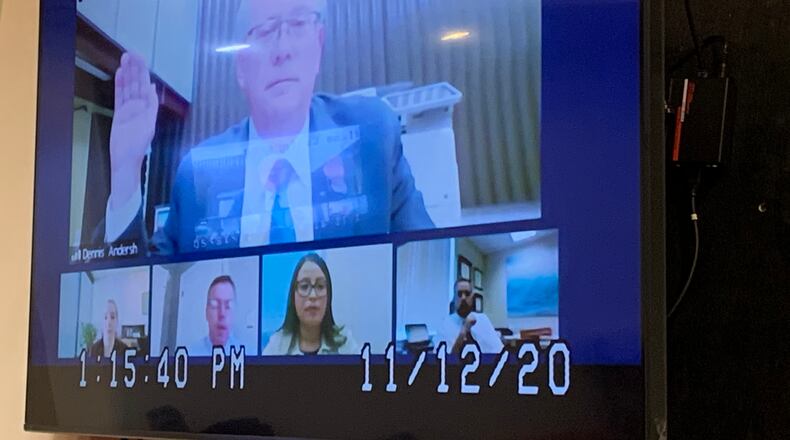The records are copies of emails that the Dayton Daily News requested last year. The paper is seeking copies of emails to and from WSARC Executive Director Dennis Andersh, who was at the time both WSARC director and a WSU employee. The emails used Wright State’s email server.
Ohio law broadly states that documents - including emails - created by employees of state agencies and universities are considered public records and copies can be requested by any member of the public. Ohio’s public records laws are intended to make it easier for citizens to know about and understand the workings of their state government and its institutions.
“The records at issue, which just document WSARC’s activities, are not public records,” Tim Pepper, an attorney for WSARC, argued before Magistrate Stephanie Hayden on Thursday. “Is WSARC a public entity? No, it’s not.”
The hearing before Hayden in Greene County Common Pleas Court Thursday was about whether to lift a restraining order sought by WSARC when Wright State declared it was going to release the records to the newspaper.
Mia Yaniko, head of the Ohio Attorney General’s higher education section, represented Wright State Thursday and suggested Hayden review the records behind closed doors to determine if they are public.
“Wright State University is seeking the court’s direction in how to proceed,” she said.
Andersh took questions from both sides via Zoom Thursday, saying that WSARC has been self-sufficient and separate from WSU since mid-2016, operating essentially as a defense contractor that gets most of its revenue from outside WSU.
Andersh also noted that all WSARC employees were until recently on the university’s payroll — reimbursed by WSARC — and that they used Wright State email addresses and some of the redacted reports were sent to university officials.
The Dayton Daily News requested Andersh’s emails and other records in January 2019, shortly after WSARC shut down and sold the property of the Advanced Technical Intelligence Center. The records request wasn’t fulfilled until August 2020, when 2,757 pages were provided, many partially or fully blacked out.
After the Dayton Daily News objected to the redactions, Wright State informed WSARC it would provide unredacted records, leading WSARC to file for an injunction blocking the release. A temporary injunction was granted until the court could rule on the case.
WSARC once served as the university’s research funding arm. WSARC recently announced it is changing its name to Parallax Advanced Research after severing all ties with Wright State in October. But the court cases still list it as WSARC.
Wright State University in October filed a separate lawsuit against WSARC claiming the non-profit didn’t turn over university property when the two entities split. WSARC denies this claim.
About the Author

